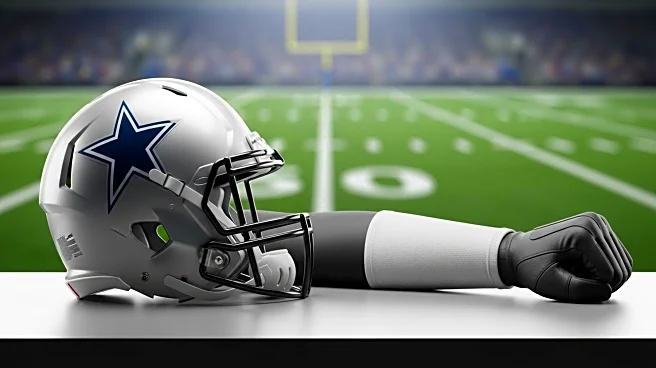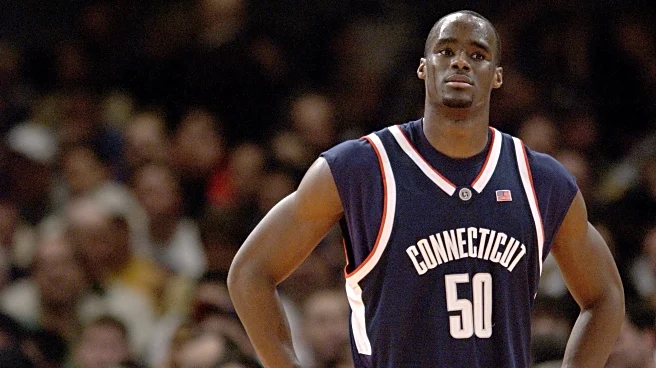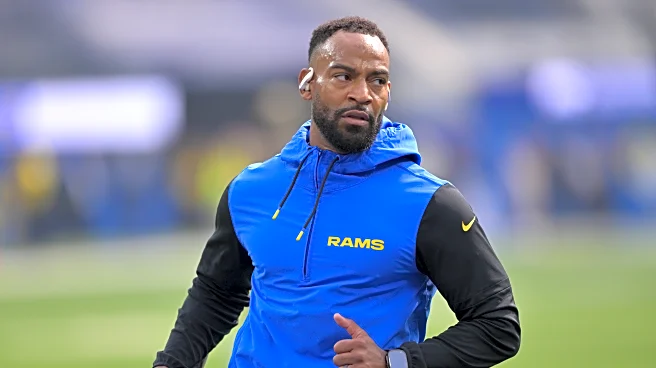What's Happening?
The Dallas Cowboys have traded their star defensive end, Micah Parsons, to the Green Bay Packers, a move that has intensified the pressure on quarterback Dak Prescott. Prescott, who recently signed a record-breaking contract, is now expected to lead the team to a Super Bowl victory despite the loss of Parsons. The trade, which involved acquiring defensive tackle Kenny Clark and two first-round picks, reflects a strategic shift in the Cowboys' management approach. Prescott acknowledged the pressure he faces as the team's leader and expressed that he was not entirely surprised by the trade, given the contentious contract negotiations with Parsons.
Why It's Important?
The trade of Micah Parsons is significant as it alters the dynamics within the Dallas Cowboys, placing more responsibility on Dak Prescott to perform at a high level. Prescott's contract, which makes him the highest-paid player in NFL history, comes with expectations of leading the team to success. The decision to trade Parsons could impact the Cowboys' defensive capabilities and overall team performance. Owner Jerry Jones' belief in Prescott's ability to win a Super Bowl underscores the pressure on Prescott to deliver results. The move also highlights the financial strategy of spreading wealth across the team rather than concentrating it on a few star players.
What's Next?
The Cowboys will need to adjust their defensive strategies following Parsons' departure, with new coach Brian Schottenheimer and defensive coordinator Matt Eberflus tasked with maintaining pass-rush pressure. Prescott will open the season against the Philadelphia Eagles, a game that will test his leadership and ability to handle increased scrutiny. The Cowboys' management will continue to evaluate the long-term impact of the trade and Prescott's performance, which could influence future roster decisions and contract negotiations.
Beyond the Headlines
The trade of Micah Parsons may have deeper implications for the Cowboys' team culture and management philosophy. It raises questions about the balance between investing in star players and building a cohesive team. The decision could also affect the morale and dynamics within the locker room, as players adjust to the absence of a key defensive leader. Additionally, the trade reflects broader trends in the NFL regarding salary cap management and the prioritization of long-term team building over immediate success.










